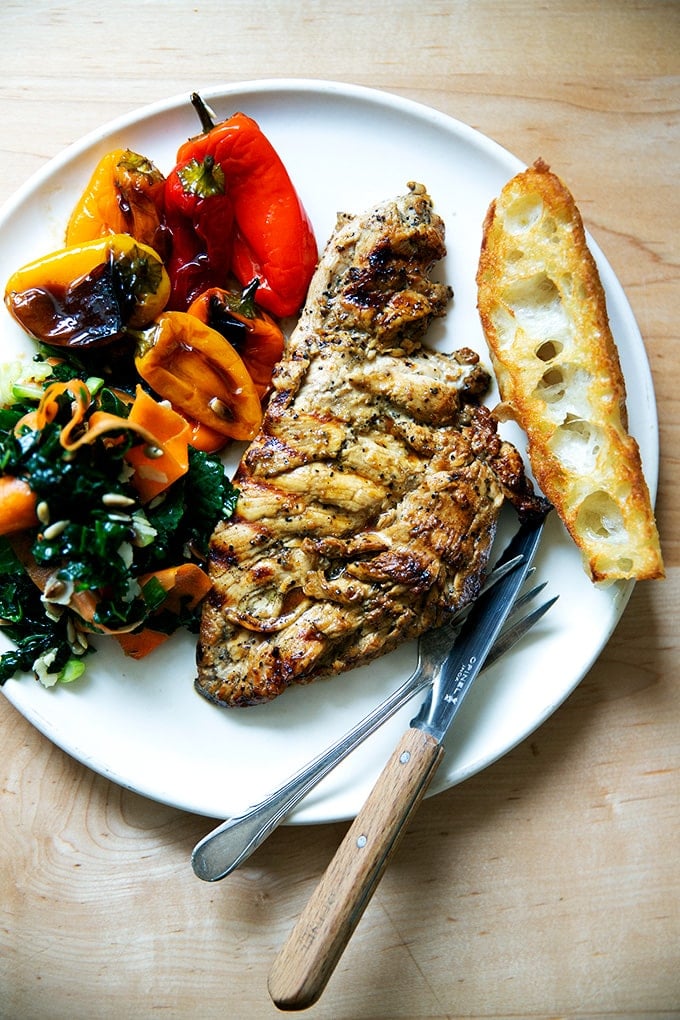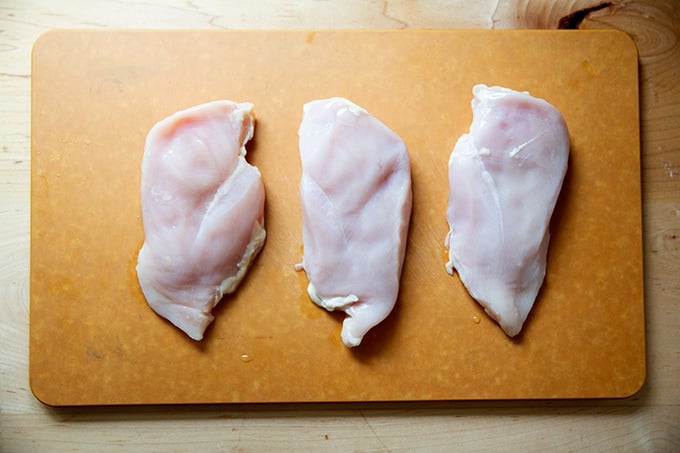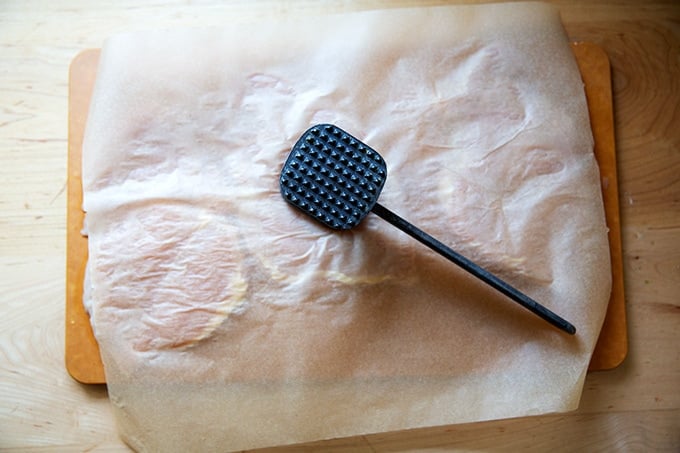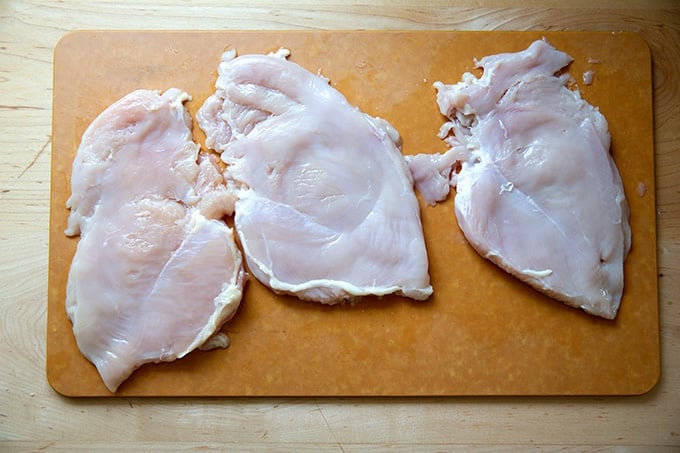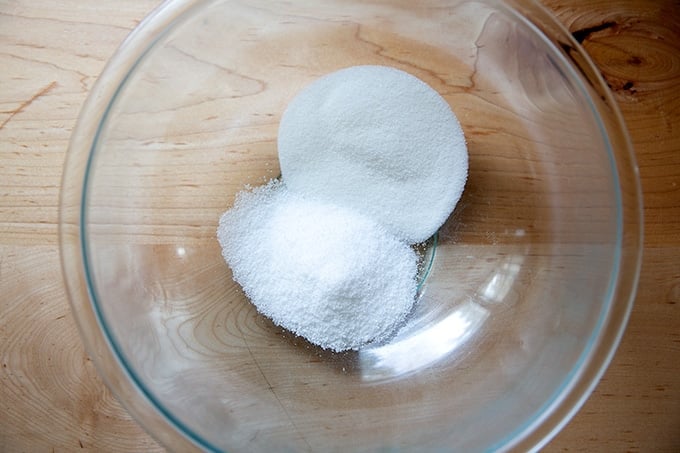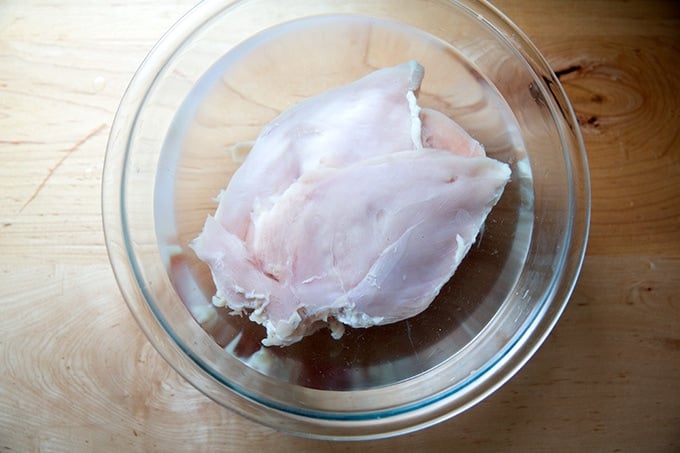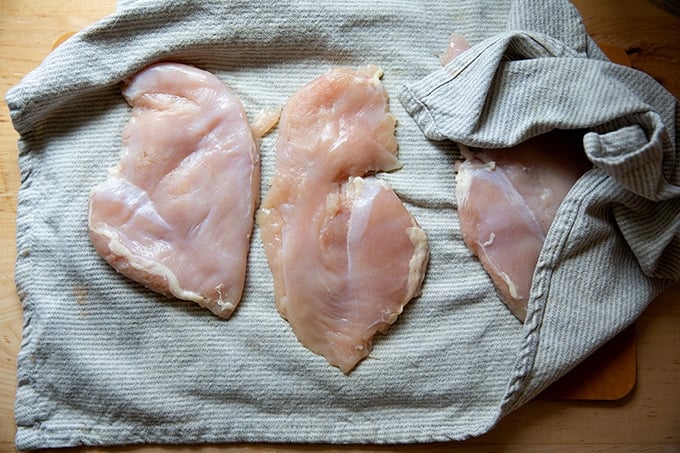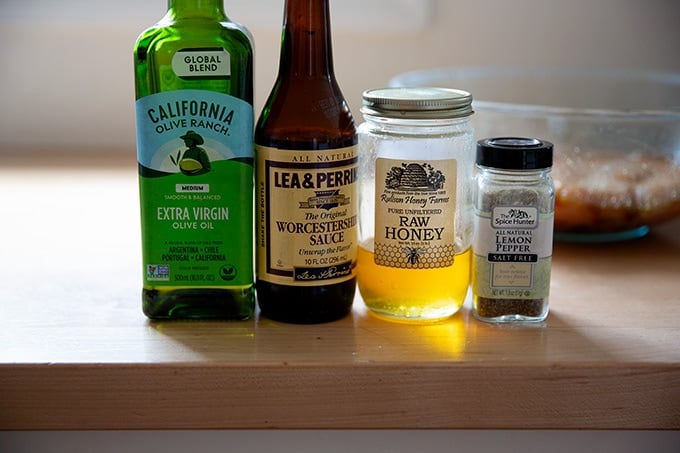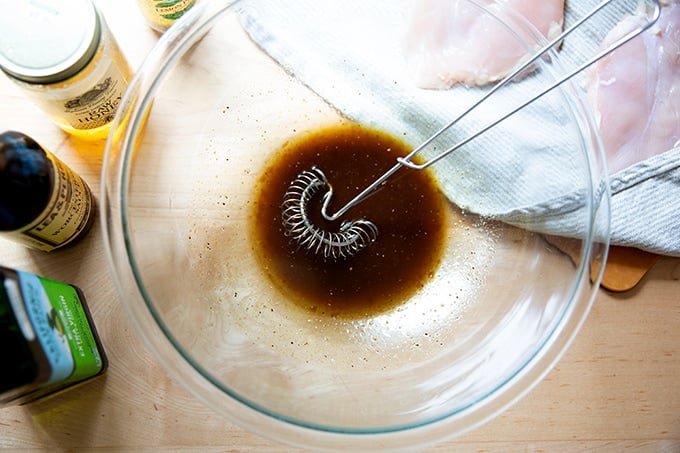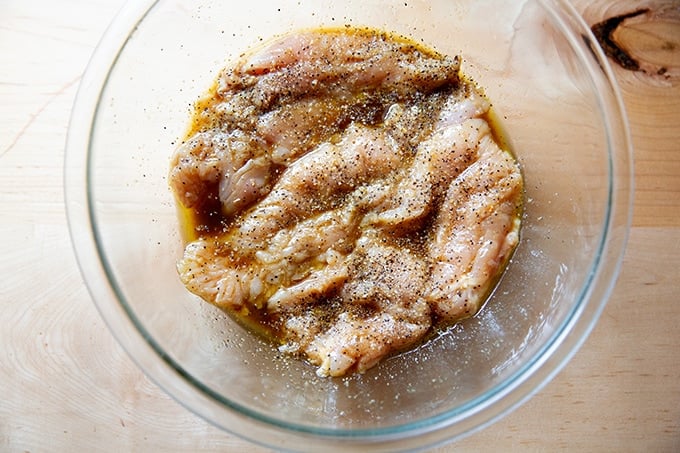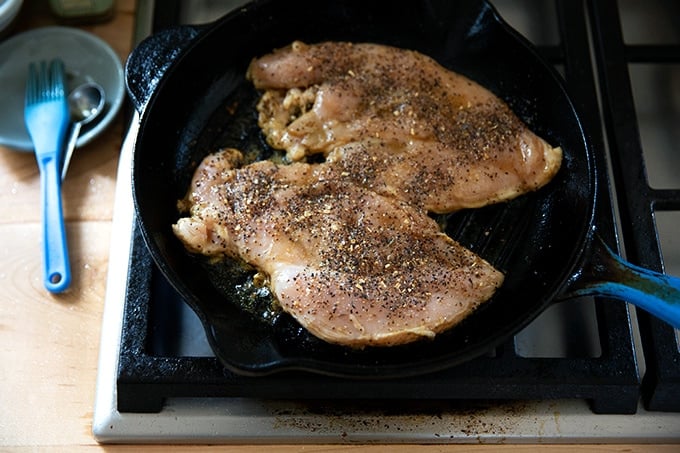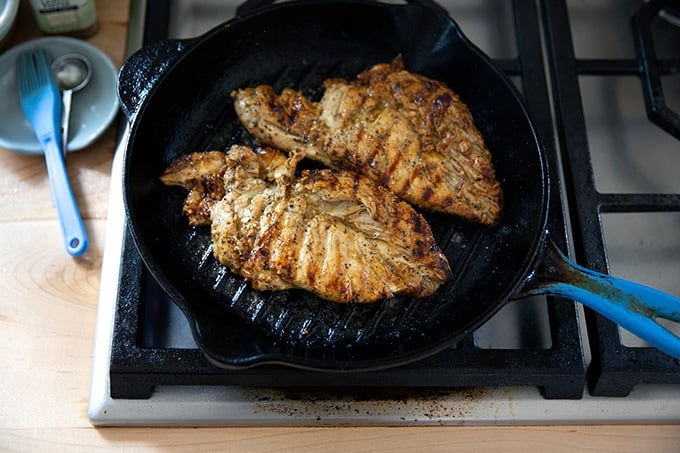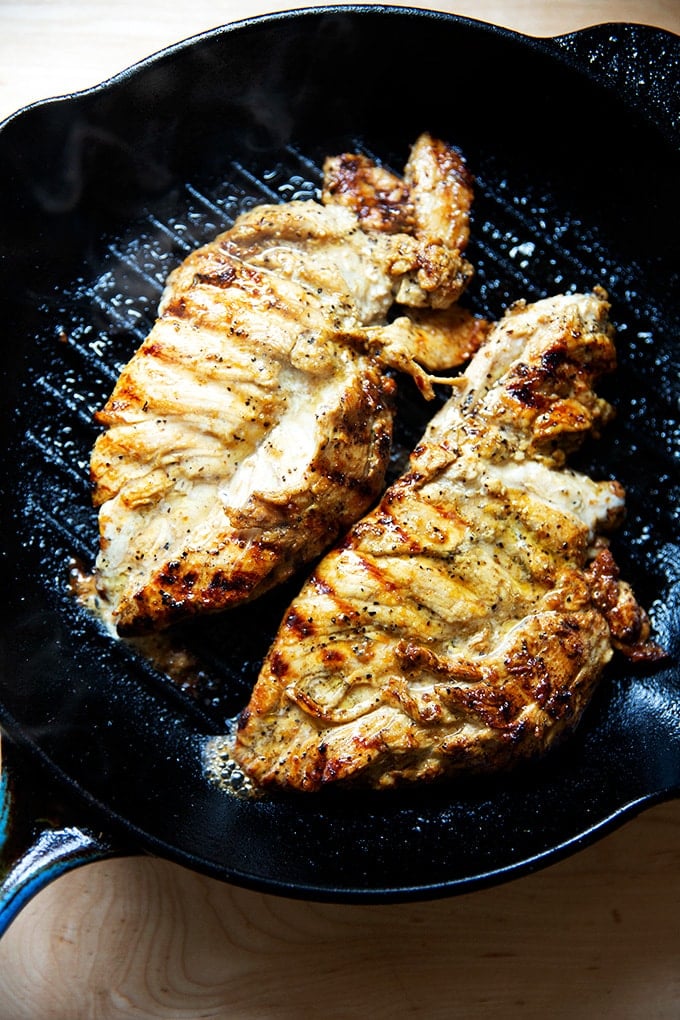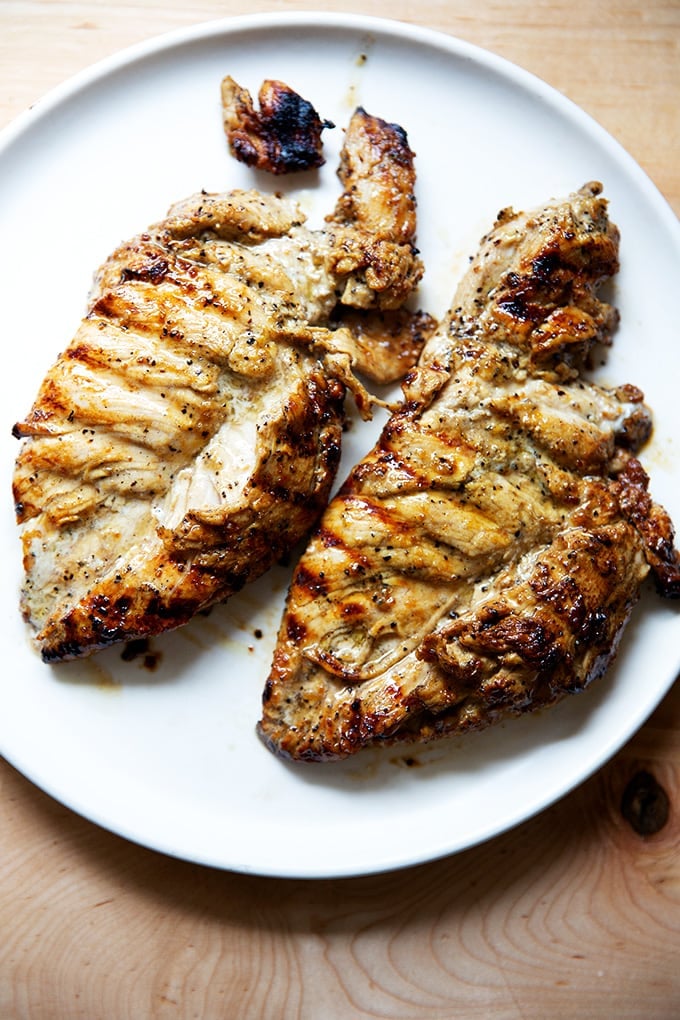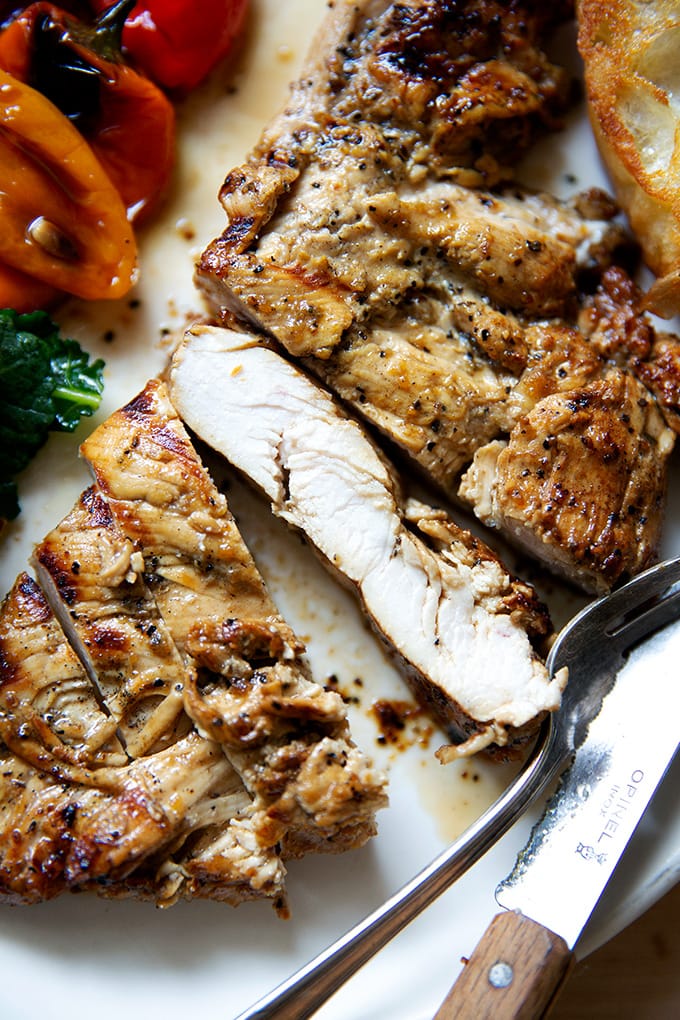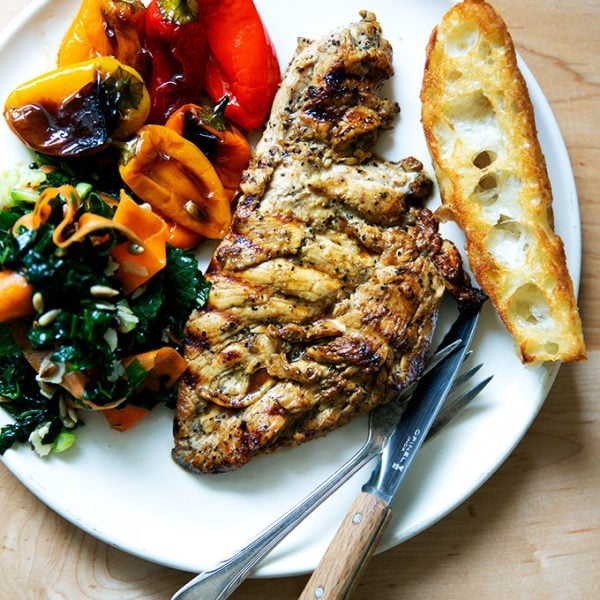Wellllllll, I replied, not really. I explained I favor dark meat chicken over light and that I only buy 80/20 ground beef. I confessed to never having cooked ground turkey and that bacon was definitely not lean. And the reason she likes those ribs so much is because of the fat. But I defended my choices, too, noting foremost that we don’t eat a lot of meat, and also that not all fat is bad. I explained that “leanness” is not the only factor to consider when evaluating what’s “healthy.” And I talked to her about factory versus sustainable farming. Despite my efforts, the conversation ended with a request: Can you make me a chicken breast? Sure Sweetie Pie. I’d love to. Sigh. As many of you know, chicken breasts do not excite me. There is one and only one chicken breast recipe on this site, and while I love it, my children do not. Would there be any point to this endeavor? Would I make the effort only to watch them push their chicken pieces around their plate? To guess how many seconds might pass before they asked for the ketchup? I wasn’t sure, but as you can gather from the title of this post, the exercise was a success, and it didn’t take too many tries to get there. When I presented the grilled breasts aside boiled (and well-buttered) broccoli, I waited with bated breath. And when I heard mmmmms all around and requests for seconds, I danced a very happy jig. This is what I did:
3 Tips for Juicy Grilled Chicken Breasts
Pound. Brine. Marinate.
Pound. Pounding not only ensures the thickness of the breast is uniform, it also tenderizes the meat. Brine. Inspired by a recipe in Cook’s Science, I decided to make the effort to brine the chicken breasts briefly before grilling them. I understand if this step might be a page-turner for you — not too long ago it would have been for me as well — but it truly helps both season the meat and keep it moist during the cooking. And I promise you it’s not hard: simply dissolve 1/4 cup each of salt and sugar in cold water, submerge the breasts, leave for 30 to 60 minutes or up to 4 hours. Marinate. The marinade I went with here is inspired by a reliable and simple favorite — olive oil, Worcestershire sauce, and lemon pepper — with the addition of a teaspoon of honey for flavor and to encourage browning. You can marinate for as few as 15 minutes or up to 24 hours.
An Interesting Note
In a sidebar in Cook’s Science, the authors name Bell & Evans Air-Chilled Boneless Skinless Chicken Breasts as their favorite specifically for its tender texture. And the reason the texture of this particular brand of chicken is more tender than others is that it’s given time to “age.” Once the chicken is broken down into parts, the breasts are aged on the bone for 12 hours before the bones and skin are removed. Why does aging make the meat more tender? Two reasons: Interesting, right? Many companies skip this aging step because building time into the process costs money. If you live locally, the Niskayuna Co-op carries Bell & Evans chicken breasts.
Simple Grilled Chicken Breast, Step by Step
Place your chicken breasts on a clean work surface. Cover with wax paper, parchment, or plastic wrap; then flatten them with a meat mallet. You want the breasts to be roughly 1/2-inch thick. Make the brine by dissolving 1/4 cup each salt and sugar in 1.5 quarts of cold water. Add the breasts and leave for 30 to 60 minutes. I’ve brined them for longer, too, with no adverse effects. Pat dry. Whisk together a simple marinade: olive oil, Worcestershire, honey, and lemon pepper. Add the breasts and let marinate for as few as 15 minutes or as long as 24 hours. Place a grill pan (or heat an outdoor grill) over medium-high heat, brush with 2 teaspoons of oil, and grill the breasts for roughly 3 minutes a side. Transfer to a plate to rest for 5 minutes before serving. Serve aside whatever you like. Pictured below: balsamic-roasted mini peppers, kale salad with the addition of ribbony carrots, cucumbers, and toasted sunflower seeds, and focaccia. So juicy! 5 from 24 reviews Update: Recently, for time purposes, I skipped the brining step, and they breasts came out as juicy as ever — I pounded them, cut them in half (so I had 6 small-ish breasts) and let them marinate for several hours in the fridge. I do think brining is a wonderful technique for breasts, but perhaps pounding is more of the key to tenderness here.
